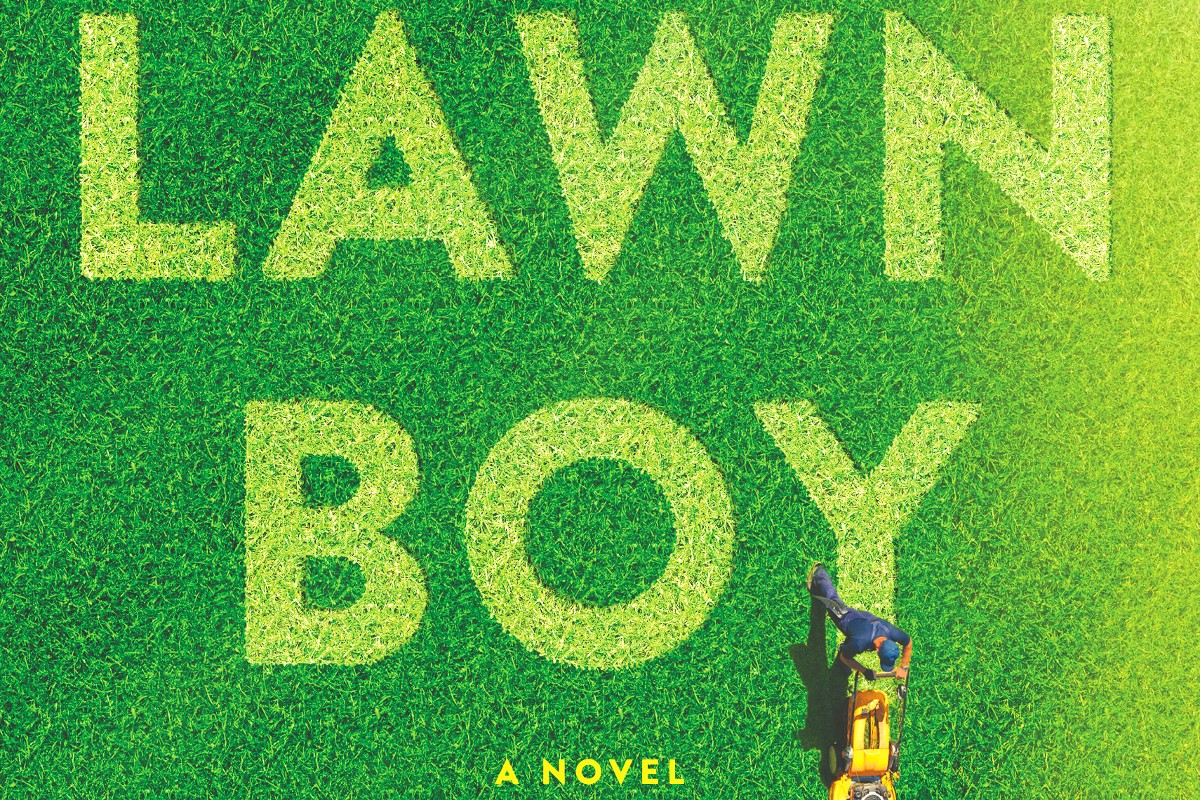Why Conservatives Are Manufacturing Controversy Over This Coming-of-Age Novel

Lawn Boy is a 2018 semi-autobiographical coming-of-age novel by author Jonathan Evison. The novel, written in Evison’s signature humorous and irreverent tone, profoundly explores the innermost thoughts and feelings of its protagonist, Mike Muñoz. Readers follow Mike along a journey of self-discovery as he struggles to understand the hardships of his life, the realities of the so-called American Dream, and his sexuality and identity.
Upon its release, Lawn Boy received a largely positive reception from critics and was even awarded a 2019 Alex Award from the American Library Association. The book effectively combines realism with humor in its depiction of Muñoz and through his narration. However, it also delves deep into many serious topics, including racism, class division, capitalism, and sexuality. It’s the type of novel that goes far beyond a mere story, challenging its readers to understand Muñoz’s point of view and how the American experience differs for many depending on race and class.
Considering the positive critical reception of the book and its thought-provoking premise, some may be surprised to learn that Lawn Boy was the seventh most challenged book in the United States last year. The American Library Association compiled a list of the 13 most challenged books in 2022, a year in which book challenges and banning efforts hit a record high. The ALA notes that Lawn Boy was most commonly challenged “for LGBTQIA+ content” and “claims it is sexually explicit.” Here’s what you need to know about this acclaimed book, and why conservatives are targeting it.
Lawn Boy targeted by book banners over claims of sexual content
Challenges to Lawn Boy started gaining momentum in 2021, when Brandi Burkman, a mother in the Leander Independent School District in Texas, began lobbying to ban the book, claiming it was filled with sexual conduct and depictions of pedophilia. Her claims sparked hysteria, with parents even reportedly going to Leander Police about the book’s presence in school libraries. Efforts to ban Lawn Boy quickly reached school districts in other states, including Virginia, Minnesota, North Carolina, Nevada, and Utah. Board members of the Fairfax County Public Schools in Virginia reportedly received death threats over the book.
Evison also received death threats after Burkman began lobbying to ban Lawn Boy. However, her claims that the book contains pedophilia are unfounded. Burkman wrongly accused Lawn Boy of depicting pedophilia by taking an excerpt out of context in which an adult narrator recalls sexually experimenting with another boy when they were both 11 years old. The scene is not graphically portrayed at all and merely alludes to “innocent experimentation” between two boys of the same age. Additionally, there are no graphic depictions of sex anywhere in Lawn Boy. The number of complaints the book received for sexual content and pedophilia, though, proves that most of the people challenging the book haven’t read it. They are just repeating the misinformation they heard from Burkman.
Why is Lawn Boy one of the most banned books?
Claims of pedophilia in Lawn Boy were proven to be false, and the book has no graphic depiction of sex. So, why is it still being banned for alleged sexual content? While Lawn Boy was reportedly challenged for being “sexually explicit,” it is worth noting that every book on the ALA’s list of the top 13 banned books in 2022 was challenged with claims of sexually explicit content. However, most of these books don’t feature any sexually explicit content.
A recent book-banning tactic is to label any books that reference sex, sexuality, or gender as sexually explicit or pornographic. Essentially, the “sexually explicit” claim is just a guise for banning books that tackle topics conservative parents and politicians dislike, such as race or LGBTQ+ themes. For them, any reference to sex makes a book sexually explicit, even if it is subtle or used to encourage sexual education or raise awareness of sexual abuse. Evison suggested that Lawn Boy and the other most banned books of 2022 were banned because they featured nonwhite or non-binary characters. Writing for Poets and Writers, Evison explained:
It certainly seems as though these moral crusaders want to expunge these books from libraries not because they are pornographic in nature, but because these books threaten some of their fundamental beliefs, such as the belief that white, cisgender, Judeo-Christian lives are somehow more important, and more central to the American experience, than other lives.
Lawn Boy boldly tackles many important topics and gives a voice to the Mike Muñozes of the world. Unfortunately, those who feel threatened by this have inundated it with largely unfounded claims of sexually explicit content to get it banned and viewed as controversial.
(featured image: Algonquin Books)
Have a tip we should know? tips@themarysue.com